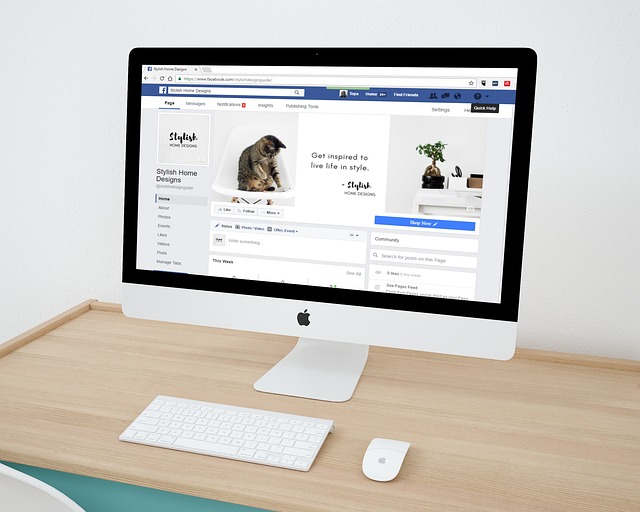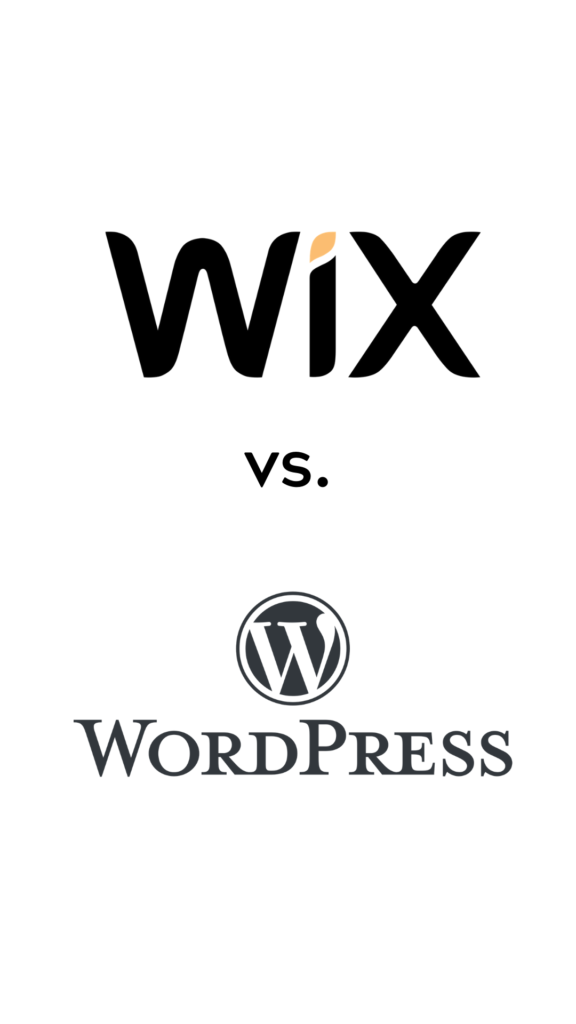
Why use Wix over WordPress?
Why would you use Wix over WordPress? Is one really better than the other? Are these platforms designed for the same purpose? These sapient questions becloud the minds of many website developers, content creators and site owners who are intent on utilizing a platform that serves their needs thoroughly.
The main problem is the lack of clarity between Wix and WordPress, especially for newcomers in the digital world. This conundrum is mirrored by an article from Forbes, which underlines the significant chasm of understanding between the capabilities and the use cases of both platforms. Additionally, a report from TechRepublic draws attention to the increasing contention between these two giants. In response to this issue, several surveys have been conducted in the USA to gauge the popularity of both platforms, laying ground to a necessity of hashing out the superiority and specificity of one over the other.
In this article, you will learn about the unique characteristics of both Wix and WordPress, shedding light on their functionalities, versatility, and the learning curves for each platform. You will gain a thorough understanding of the attributes that set them apart, their advantages, disadvantages, and use-cases.
Ultimately, this article endeavours to offer an objective view, aiding you in making an informed choice, discerning which platform will be the optimal choice for your specific needs. No matter your level of technical proficiency or the complexity of your project, this comprehensive guide aims to simplify your decision-making process, particularly in the Wix versus WordPress debate.

Definitions and Concepts: Wix vs. WordPress
Wix and WordPress are both popular tools for building websites. Wix is a cloud-based web development platform that allows users to create HTML5 websites and mobile sites through the use of online drag and drop tools. It’s perfect for beginners, providing a simple interface, professional templates, and an array of features without requiring any coding knowledge.
On the other hand, WordPress is open-source software that you can use to create your own website, blog, or even an application. This platform offers more flexibility and customization but may require some technical skills to fully utilize its features.
Choosing between these two depends on your specific needs, technical skill level, and the amount of customization you desire for your website.
Unmasking the Charm: Why Wix Shines Brighter than WordPress.
Effortless User-Interface and Setup
The prominent reason why Wix often outshines WordPress in the showdown is its user-friendly interface and quick setup. Wix is a platform that is perfect for beginners, who are not well-acquainted with the nuances of building websites. It offers a straightforward drag-and-drop mechanism where users just need to select components and place them as they desire. WordPress, on the other hand, necessitates a steeper learning curve, proving somewhat complex for complete novices. It demands users to have at least a basic understanding of coding for an enhanced experience.
Moreover, with Wix, you don’t spend time and energy on setup and hosting as it’s an all-inclusive platform providing every service from domain registration to hosting. With WordPress, users have to navigate their way through choosing a hosting provider, installing WordPress, and managing updates and backups themselves.
Customization, Personalization, and Wix ADI
Albeit WordPress does offer more themes than Wix, it is still the latter which provides direct control of what your website looks like exactly. Every element on a Wix website can be manipulated to your liking without the need for coding skills. If you have the time and the creative knack, you can play around all you want with how you want your website to look with Wix. In contrast, WordPress’ themes operate in a block system and to truly customize it beyond the presets would usually require some knowledge of CSS or even PHP.
Adding to the mix is the Wix ADI (Artificial Design Intelligence), a remarkable feature exclusive to Wix. This tool saves a lot of time and effort by creating a customized website based on your responses to a few questions.
- Wix has a built-in Artificial Design Intelligence (ADI) tool
- Customization options with simpler interface
- Wix offers ease of use for beginners
These two aspects are a game-changer when talking about Wix vs WordPress. While both are valuable platforms with their own distinctive strengths, the edge in user friendliness, customization, and personalized experience that Wix offers can not be undermined. For beginners deciding between Wix and WordPress, Wix emerges as the unexpected winner with less of a learning curve and valuable features that cater to non-technical website builders. It’s a platform that is worthwhile considering alongside WordPress when you are next looking at building a website.
Get Wiser with Wix: Breaking Down How Wix Outperforms WordPress.
Have You Considered the Ease-of-Use?
Consider this, would you prefer an easy-to-navigate platform over a complicated one that requires more understanding? One main advantage of using Wix instead of WordPress lies in its user-friendly interface. Immersed with intuitive drag-and-drop functions, Wix offers seamless navigation which allows for beginners to design a professional-looking website in no time as opposed to the latter. Unlike WordPress, Wix takes away the need to possess coding skills as it operates on a WYSIWYG (What You See Is What You Get) editor. This simplifies the process as you only need to select, customize and position your elements exactly as you please. Further, plenty of attractive templates are available on Wix, allowing users to match their website with their business theme.
Security Issues – A Major Concern
While WordPress offers more flexibility and control over your website, it also surfaces an often-overlooked problem – security issues. Being an open-source platform, WordPress is vulnerable to potential threats and hacking attempts. Hackers tend to exploit the vulnerabilities in outdated plugins and themes, making it a necessity to constantly update and check your security measures. In contrast, Wix offers a managed solution where all security updates and site maintenance are handled by the platform itself. Therefore, there are fewer compromises and lesser headaches for you as all security patches and updates are pumped out without needing your intervention.
Practical Examples of Wix Advantages
So, how does Wix offer a cutting edge? Let’s delve into some practical examples. Small business owners, for example, can benefit from Wix’s efficiency and speed in creating their website. They can put together and launch their site quickly without needing to learn complex code or hire developers. Another instance is bloggers who aim for a visually pleasing website that matches their theme. With an extensive collection of designs, Wix serves as a great escape from WordPress templates that often need comprehensive tweaking. Lastly, for entrepreneurs prioritizing secure transactions for their e-commerce, Wix guarantees this safety for their customers, minimizing the risk of hacking and malware. These examples underline why Wix can be a viable option over WordPress.
Let’s get Bold with Wix: Challenging the WordPress Monopoly!
Deconstructing the Status Quo
Have you ever wondered if the traditional IT paradigm is truly the best solution for building an online presence? Wix is questioning the status quo held by WordPress, forcing both developers and consumers to rethink their website development strategy. Traditional website design and development demands technical knowledge and coding skills, often an obstacle for many businesses. WordPress, ruling the game for many years, can often require advanced flair with coding for customization, not to mention its requirement for a web host and necessary maintenance. Wix, however, has emerged as a disruptive force, upending these requisites with its simplistic, user-friendly, drag-and-drop interface. It is an inclusive platform, welcoming individuals even without a tech background.
Clearing the Field of Obstacles
Wix champions ease and efficiency by eliminating the need for programming skills, something that is typically mandatory with WordPress. With its pre-designed templates and drag-and-drop functionality, Wix levels the playing field for businesses of all sizes and industry verticals. Security concerns prevalent with WordPress are notably absent with Wix, freeing users from the worry of constant updates and maintenance. Moreover, Wix is fully hosted, so users do not need to search and pay for reliable web hosting, a necessity with WordPress, saving time and resources that can instead be invested back into the business. Thus, it’s refreshing to have a platform that, instead of being a problem, serves as a concrete solution.
Setting the Standard
The innovation imbued into Wix’s platform has quickly become an industry norm, with many website builders replicating their user-friendly approach. Examples can be seen across myriad businesses; for instance, small pastry shops using Wix’s in-built SEO Wiz to gain visibility, photographers utilizing their stunning portfolio templates, or even large corporations exploiting their advanced design capabilities for a sleek, professional look. For individuals, Wix’s ADI (Artificial Design Intelligence) system uses artificial intelligence to automatically create a unique website – a feature WordPress lacks. Wix allows for customization without the headache, demonstrating best practices to companies that value both aesthetic and functionality. By embracing Wix’s game-changing strategy, businesses are experiencing empowered usability, breaking barriers and bringing a new dawn in website development.
Conclusion
Isn’t it intriguing how each digital platform offers a unique set of features, which may pose challenges to some but can also spawn creative solutions? In conclusion, domains like Wix have established their specialty in providing a more beginner-friendly interface than WordPress, that caters ideally to small business owners and individuals without a strong tech background. Wix offers ease-of-use in terms of its intuitive drag-and-drop feature and a plethora of attractive design templates, eliminating the need for coding expertise. WordPress, on the other hand, although flexible and powerful has a steeper learning curve, which could potentially be a deterrent for some users.
We hope this article has given you valuable insights into why one might choose Wix over WordPress. Stay tuned with this blog to keep yourself updated on such useful information. We continue to explore various strategies and platforms that can enhance your digital journey. You can look forward to more detailed comparisons, tips, and tricks that help in building an effective and attractive online presence that is uniquely personalized to your needs.
Remember to subscribe to our blog and turn on notifications so you don’t miss anything. We are excited to bring you more insights about the ever-evolving digital world and how to navigate it effectively. While we thoroughly research all facets, we also look forward to your comments, suggestions, and queries as these help us provide richer, more relevant content. Your steady engagement will enable us to keep serving you with articles that reflect the most recent developments, trends, and best practices prevalent in the digital landscape. Wait for our next releases as they promise to be as informative and enlightening as this one.
F.A.Q.
1. What advantages does Wix hold over WordPress?
Wix provides ease of use with a drag-and-drop interface, making it more beginner-friendly. This means anyone can create a beautiful website without coding knowledge, compared with WordPress, which requires a steep learning curve.
2. Is Wix cheaper to maintain than WordPress?
With Wix, users get different subscription plans, with services like domain registration, bandwidth, and hosting included. In contrast, WordPress users have to manage these aspects independently, which can potentially be more costly and time-consuming.
3. Can I customize my Wix site as much as I can on WordPress?
While WordPress offers wider in-depth customization, Wix offers significant visual customization with less complexity. So, for users with limited technical skills, Wix offers a more intuitive, hassle-free customization approach.
4. Is Wix better for eCommerce than WordPress?
Wix has built-in eCommerce capabilities, making it easier for business owners to set up an online store. While WordPress requires integrating with plugins like WooCommerce, Wix has all necessary eCommerce tools in one place.
5. How does Wix’s customer support compare to WordPress?
One of Wix’s major advantages is its reliable, dedicated customer support, including phone and email assistance. In contrast, WordPress relies mainly on community-based support, which can be less immediate or comprehensive.


